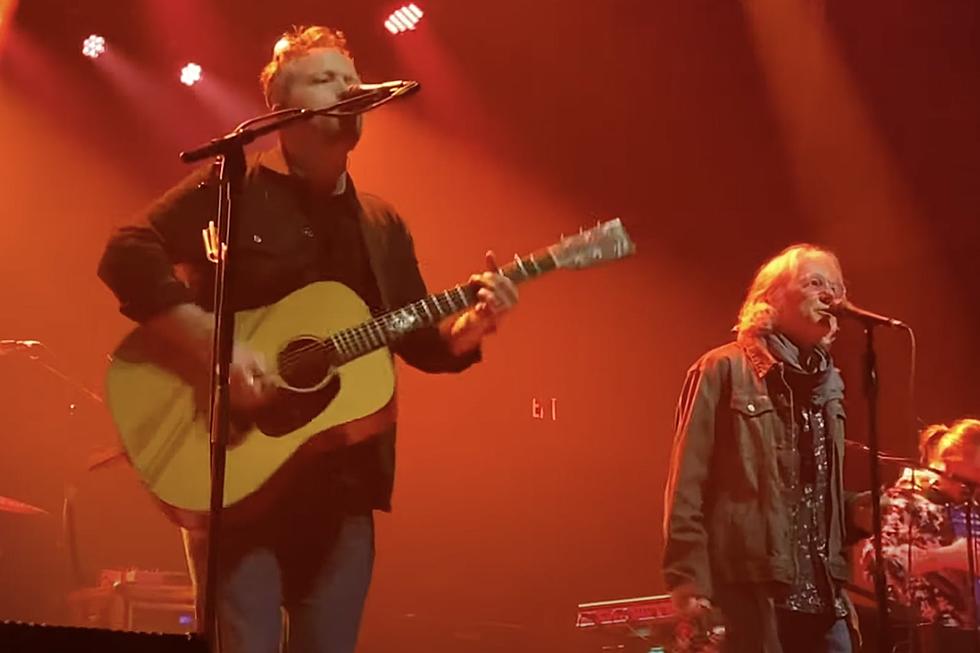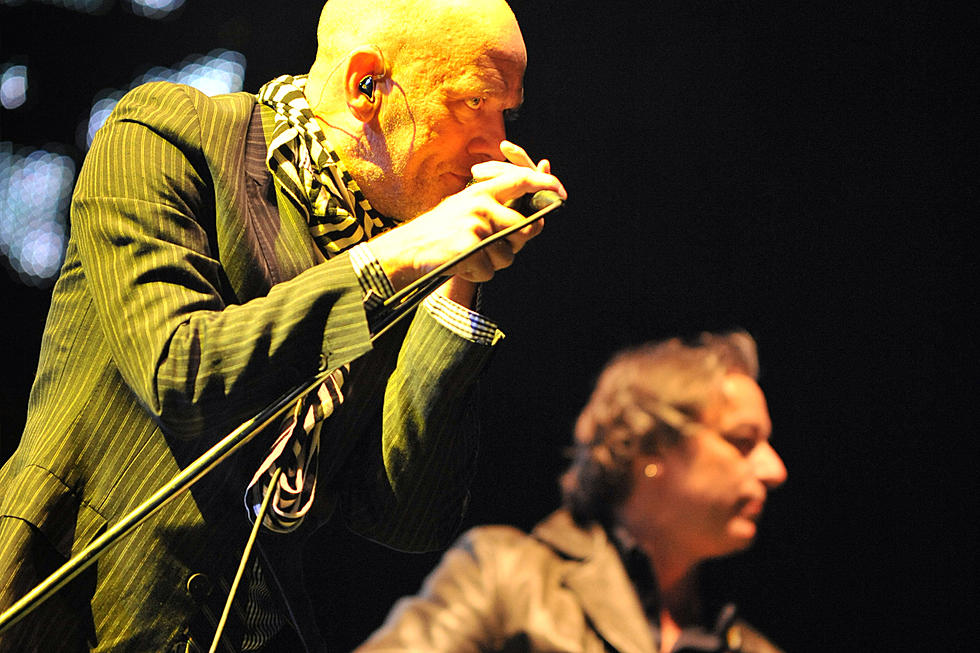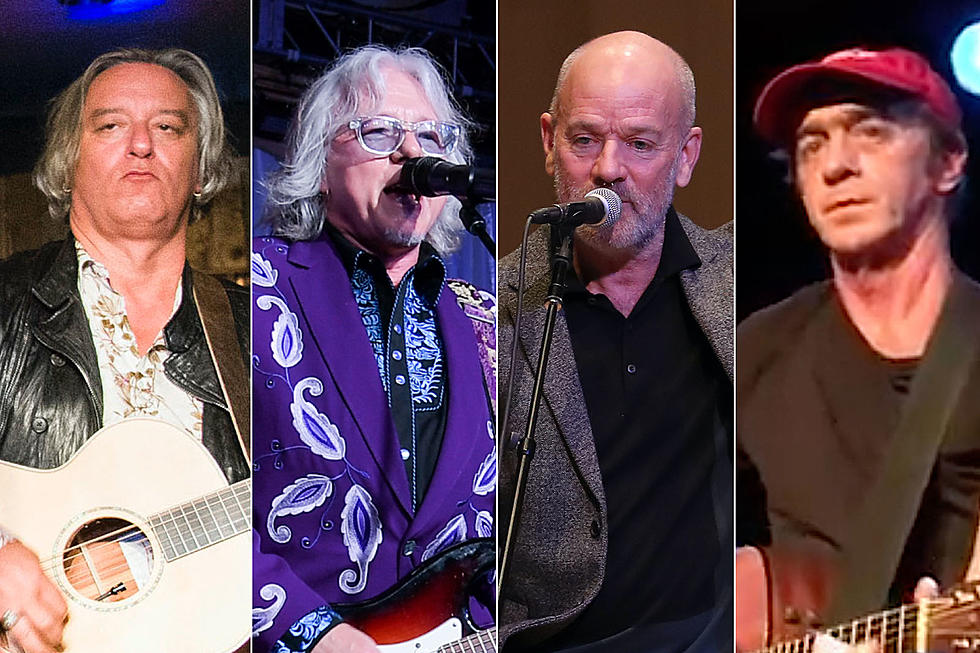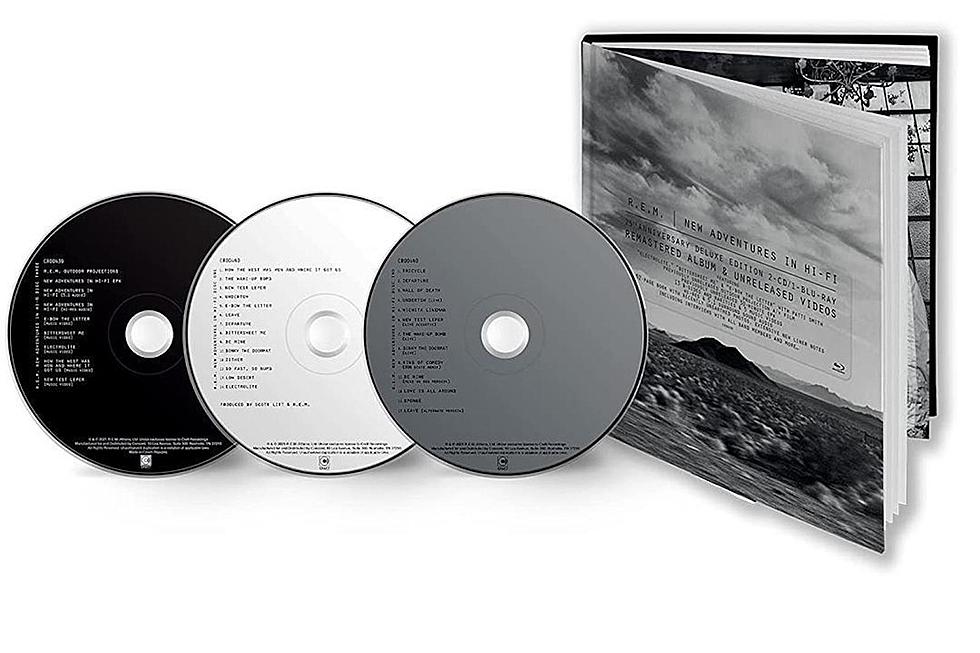R.E.M. ‘Find the River’ and Discover a Sweet Release
A record that began with a message to the kids about control (“Drive”) ends with a song suggesting that we’re all powerless in the face of mortality. Time doesn’t stop. “The ocean is the river’s goal.” The only thing that’s truly “automatic for the people” is that every one of us has an end date. Even Andy Kaufman.
Maybe that’s gloomy – and there are plenty who think that the whole of R.E.M.’s Automatic for the People is pretty gloomy – but just because “Find the River” deals in death doesn’t mean it’s depressing. The finale gurgles with humanity, celebrating the path we’re all on, reminding the younger generations from the precipice of death: “All of this is coming your way.” Singer Michael Stipe’s goal doesn’t seem to be to inspire fear in the hearts of listeners, but acceptance. Enjoy your float downstream.
The resigned beauty isn’t just in the gently intoned words, but in the warm instrumentation. Most of it can be credited to the multi-talented Mike Mills, who played steady bass, soothing organ, Nashville piano, lots of acoustic guitars and that memorable melodica line on the track. With Bill Berry on drums, Mills recorded the song under the working title “10K Minimal” while R.E.M. were tracking demos in February 1992 at John Keane Studios in Athens, Ga. But because the demo was so fully realized, there was (10K) minimal work to be done when the “real” sessions began at Bearsville Sound Studios in Woodstock, New York.
“Mills did it in about 30 minutes, and it had such a great feel because it was all of a piece,” guitarist Peter Buck, who doesn’t appear on the song, told Q magazine. “I refused to try to redo that.”
In addition to all of his instrumentation, Mills had the idea to do something unusual with the backing vocals. The motivation, it turned out, came from a song from R.E.M.’s second album.
“‘Harborcoat’ from Reckoning has got me and Michael and Bill all doing completely unrelated things, and yet it works together,” Mills told Melody Maker. “We tried it again on ‘Find the River.’ I had the idea that Bill and I would go in and do some harmonies without listening to each other. It’s great because mine is this incredibly angst-ridden emotional thing, and Bill’s is this really low-key sort of ambling part. They’re two opposite ends of the spectrum but they’re both on there, and it’s a beautiful thing.”
Because Stipe’s lead part, which was recorded at Miami’s Criteria Studios, is often understated, the other vocals become more prominent. Soaring and digging in the background, Mills’ and Berry’s differing approaches represent conflicting emotions about the impending fade-out. Stipe keeps it at ground level, even as he gets poetic with names of herbs and fruits to symbolize a return to nature. Although one of the herbs the frontman references – the mysterious “rose of hay” – isn’t an actual thing.
“I made it up because I needed, and could not find, something that rhymed with ‘way’ and ‘naiveté’,” Stipe revealed in 2008.
“Find the River” closes out Automatic for the People and it was the last single from R.E.M.’s eighth album. Released more than a year after its parent record had hit stores, the sixth single from Automatic came out on Oct. 21, 1993. It proved to be the least successful, commercially, of the bunch, failing to chart in the U.S. and only getting to No. 54 in the U.K. It was one of only three R.E.M. singles released in the ’90s (out of a total of 24) to not make the Top 40 in Britain.
Due to the single’s lack of popularity, its relatively staid music video, directed by Jodi Wille, wasn’t widely viewed. In fact, when R.E.M. appeared on MTV in the U.K. in 2001, Mills requested that they show the “Find the River” video because he couldn’t remember having ever seen it.
R.E.M. didn’t perform the song much during their first post-Automatic tour (1995’s mega-tour for Monster), but took to playing “Find the River” in later tours, featuring the elegiac number heavily in 1999 and 2003. It’s fitting that the band included it in their last full concert in Mexico City in 2008. It was a worthwhile component of their live swan song.
After all, as Buck noted in 1992, “It’s a great way to end the record.”
More From Mix 92.3










